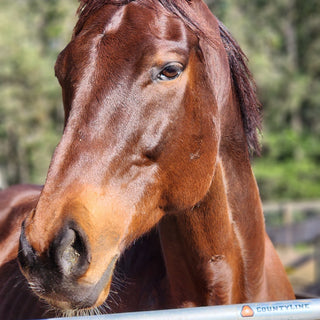Magnesium (Mg), a silvery-white metal, is the eighth most abundant element in the Earth's crust. Magnesium is an important nutrient for many living organisms, including humans and horses.
In horses, magnesium is involved in a number of important bodily functions, including regulation of heart function, maintaining strong bones, and supporting a healthy immune system. Magnesium is also an important component of chlorophyll, the pigment that gives plants their green color, which is why it is commonly found in green, leafy vegetables and grains.
Horses that do not receive enough magnesium in their diet may develop a condition known as magnesium deficiency, which can result in muscle tremors, weakness, and in severe cases, seizures. It is important to provide horses with a balanced diet that includes adequate amounts of magnesium, either through their feed or through the use of supplements.
Magnesium is a vital mineral in the body which controls levels of magnesium in the bloodstream very closely. Extra magnesium is stored in the skeleton and if there is insufficient in the diet the magnesium gets pulled from the bones to maintain blood levels. Because of this, running a blood test for magnesium is unlikely to show a deficiency until the stores in the bones are almost depleted.
It is more worthwhile to have the hay tested for Mg. Hay is or should be the principle part of the diet and thus the main source of mg, so it is useful to know the levels present. The levels of magnesium (Mg) in hay can vary greatly depending on a number of factors, including the type of hay and the soil and climate in which it was grown. Legume hays, such as alfalfa, tend to be higher in magnesium than grass hays, such as timothy or brome.
In general, it is recommended that horses receive between 0.2-0.4% magnesium in their total diet, which includes both forage (hay) and concentrate (grain) feed.
It's important to note that even if the hay you're feeding to your horse contains adequate levels of magnesium, other factors, such as mineral imbalances, may impact the availability of magnesium in the horse's diet. If you think your horse may be lacking in magnesium, try a product like Quiessence.

